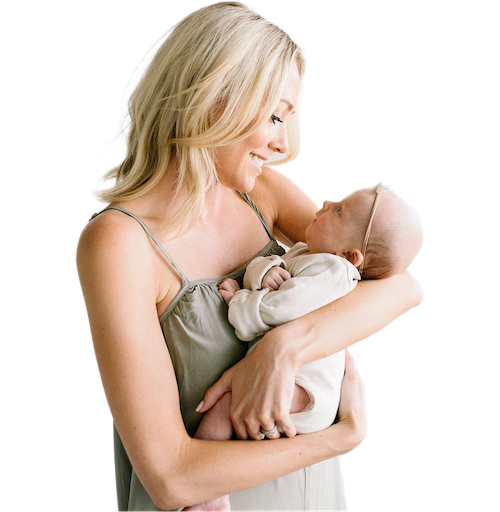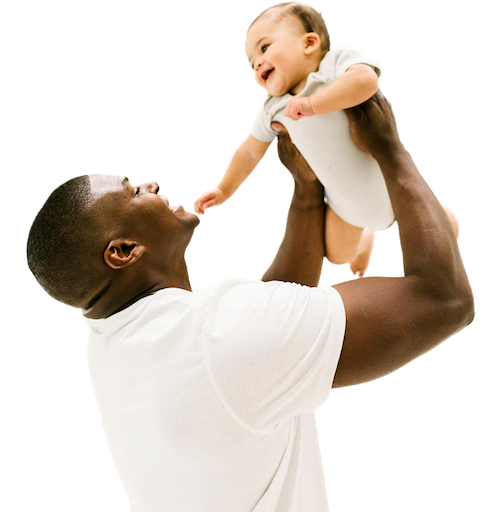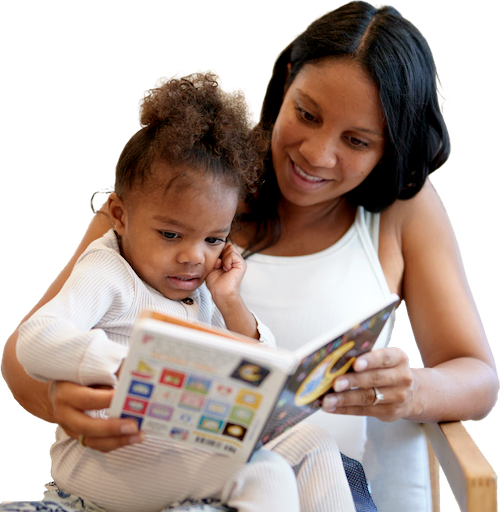You’ve learned more than you’ve ever wanted to know about oxygen saturation and bradycardias. You’re celebrating every gram your baby gains, the car seat test has been passed, and you’ve memorized every detail of the NICU schedule. Just when you’ve gotten the hang of it all... it’s time to come home from the NICU!
Congratulations! This is cause for a huge celebration, but if you’re feeling a bit of apprehension, that’s normal too.
As a baby-sleep expert and former NICU nurse, I would love to give you seven tips to help you make this transition. If you’re still waiting for the day your sweet baby comes home, read my Bonding in the NICU blog.
If the weather allows, get outside each day.anchor
Exposing your baby to daylight during awake time helps establish the circadian rhythm. It’s normal for days and nights to be a little off track from the hustle and bustle of NICU life, but simply heading outside for a bit each day truly helps babies sleep better at night. An added bonus: It can lift your mood too.
*If it’s uncomfortable outside, open the curtains and let the daylight shine in while your baby is awake. This daylight through the window is second-best if going outside is not an option.
Understand awake time. anchor
Your little one is undergoing huge developmental changes in the days and weeks after coming home. In the hospital, I know it was very common to feed your baby and have her fall right back to sleep. A feeding was enough to completely wear her out for the next 2.5 hours.
Over the next few weeks, you will notice that your baby is having more and more awake time. Stimulating that little body and brain after each feeding during the day is important and will help your baby sleep better at night. Here are some ideas of newborn awake-time activities.
Practice safe sleep. anchor
At home, if you aren’t holding your baby, he should only sleep on his back on a firm, flat surface in a crib, bassinet, or play yard. This space should be free of any loose blankets or bedding. I know this may be very different from NICU life where beds are often inclined, “nests” are utilized, and babies are sleeping on their tummies. This is necessary in the NICU and acceptable because your baby is continually monitored, but these items are not approved for use at home. This safe-sleep checklist can be a great reference for you and anyone else caring for your baby.
Expert Tip: You can find cozy sleepwear specially designed for NICU babies to help them stay warm and safe!
Utilize a sound machine for nights and naps.anchor
Adding a sound machine for sleep can really help as your baby adjusts to the new home environment. The dull roar of white noise mimics the sound your baby heard inside the womb. It truly feels like “home” and can help your baby sleep well. Check out my highlighted story on sound machines for more.
Take the Taking Cara Babies newborn class. anchor
This online class was made for you. With step-by-step videos, I will show you how to calm a fussy baby, read sleepy cues, set your days and nights up for success, and love the first few months at home. As a NICU nurse, I can confidently say that this class will build upon everything you learned while in the hospital as you transition home from the NICU. It will feel like the next natural step. I will help you lay a strong foundation for sleep while using your baby’s adjusted age as a guide. This no-cry sleep class will meet your little one right where she is developmentally and is free of any pressure, guilt, or stress. These tips can be used from the day you come home from the hospital and will set your heart and mind at ease.
Be willing to accept help.anchor
It really does take a village. You’ll likely have many follow-up appointments... from the pediatrician, to the lactation consultant, to occupational therapy, and maybe physical therapy too. We already know you’re superhuman, but those who love you WANT to help, so please ask for and accept it as much as possible. This doesn’t mean you have to ask those “helpers” to come take care of your baby. Help gets to come in any form that fits your comfort and truly makes your life easier.
Expert Tip: Leave a notebook nearby to keep a list of “needs.” When a neighbor says “Do you need anything?” you’ll be able to look at your list and say, “Actually, if you’re out and about, we need paper towels and toothpaste.” If a dear friend asks, “What can I do to help?” look at your list and say, “Our dog has a grooming appointment on Thursday. It would be great if you’d bring him home for me.” If your sister volunteers to organize a “Meal Train” for you, you can share your favorite foods. (NICU graduates can often be immunocompromised so a cooler by the front door for visitors to leave meals is a great option.) This isn’t rude! Those who love you want to help you!
Give yourself so much grace.anchor
I know the last several weeks and months have been a whirlwind. I know you probably weren’t expecting this as part of your parenting journey. Let me remind you, you have been through so much in the last few weeks or months. Be kind to yourself. It can feel tempting to try to do everything, but give yourself space to enjoy that baby as you transition home from the NICU. Both you and your baby deserve some grace as you find your new rhythm.
Can I speak truth to you for a moment?
You have been surrounded by experts. You have had access to professionals who have made it their life-long career to help babies like yours. You may be wondering if you have what it takes to meet all your baby’s needs. Let me assure you: YOU DO!
YOU are exactly what that baby needs. It may feel like everyone is way more knowledgeable about your baby than you, but the truth is this: There is no better Mama on this planet for that baby than YOU! There is no better Daddy on this planet for that baby than YOU! No one could do it better. You got this! Welcome home!
Keep in mind that the information and content on this blog is for informational purposes and should not be considered medical advice. If you have questions about your child, please reach out to your doctor.












